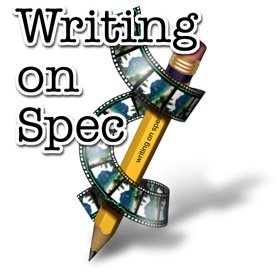What Would Aaron Do?
I really enjoy Aaron Sorkin's work, as well as assortment of other writers. Right now I'm working on a few scripts, but primarily one. The hardest part for me is sitting down and coming up with some sort of outline/timeline.
It's all pulling shit out of my ass, sifting through it and saving the best parts.
I can see no other way around this than sitting and staring into space. Of course, I do this in the worst place - in front of my computer.
How do you folks write your scripts in the beginning/planning phase? Where?

8 Comments:
Don't mean to sound dumb, but confused when you say outline/timeline...do you mean the story's timeline (chronology of events?)? Or do you mean a schedule/timeline of when and how much time to give yourself to write 'it' (and it depends on whatever it is, a feature? Or in Sorkins case of late, mostly one hour tv).
I know - too many questions...
I'm talking about after you come up with that great premise or logline, what events transpire. So it's more like an outline of the script.
In the first act I need to do this, then this, etc.
I find if I can do that, then writing the scenes is much easier. I still have some flexibility, but I have some direction. Instead of writing a scene or two and then having no idea where to go, I have a blueprint - I just need to fill in the details.
I used to just sit down and knock out a draft, though I eventually learned that that is counterproductive; you waste a lot of time trying to find the story.
I've found that one way that orders my thoughts is to write a treatment as if I'm telling someone the story. In fact, my best script actually came out of five e-mails that I once wrote someone, telling a fifth of the story each time over a succession of five days.
Because the bottom line is you want a story that is going to entertain and involve an audience.
well...this will all probably seem obvious but can only offer what I know.
Two ways I've seen and tried to lay out a quick story/outline - one is plot driven...beats/events motivated by plot or action - what happens next following your primary lead character; the other is theme driven...beats/events the echo theme or themes you are exploring -following a primary lead but can expand to other characters as well. Ideally, you'd like to arrive at a balance or neat blend of theme and plot once its all finished, but I'd suggest picking just one to get you started and through that difficult 'first pass'.
Next - decide on an ending...one of the hardest choices to make, but one that will force you to plot out a sequence of events that will ultimately arrive at that specific conclusion. If you don't know how it will end, or want to 'see where it ends up', you will eventually get there if you keep writing, but in my experience there tends to be a lot of space staring...
Then - bang out a one line beatsheet through to end...this will tend to be plot/action more than anything, but should give you that clothesline fairly quickly.
And once that one liner is finished, take a breath, and go back and flesh it out a little more (so it becomes more of an outline) but try to live with what is there...stand by your 'choices' - otherwise you can get into game of trying something else or rethinking everything again and you'll be staring off into space before you know it...
If you always try to focus on 'what should happen next' - in a logical way (as opposed to 'what you'd like to have happen next or what would be cool to happen next'...that's when convenience and coincidence rears its ugly head) - you should be able to bang out a framework/outline fairly quickly.
IMHO
That makes some good sense - separating theme & plot. I've been trying to combine them which leads to a lot of space staring (how do I combine them).
Perhaps moving ahead with plot first will assist.
Everything I've written so far has been just starting where I felt the story started and going from one scene to the next. Worked great, but too often left the big question "what's it all about?" unanswered.
The whole "full of sound and fury, signifying nothing" pithole.
Again stating the obvious - but after coming up with premise/logline, I tend to make two secondary loglines:
What happens? generally a plot summary
What is it about? more thematic
That way, you can still focus on plot for your quick one liner, but keep the 'what its about' in mind
and plug in more of that for the fleshing out pass
Scott: Funny, I've done the same thing (emails). I still have them!
There is a German filmmaker, Doris Dörrie, she always writes her films out as short stories/novels. Then writes screenplays. As a side-effect, her short story collections/novels get published, too.
I notice you're giving yourself a headache thinking up events and stuff. Perhaps you want to spend some time with your chars? Who are they, how do they live, what are their relationships like. How are they going to be affected by the events? What do you know about their personalities? What are the char arcs? What steps are on the way to get them to learn what lesson?
What does the setting look like?
Philip Morton has blogged about breaking story recently.
I always start with characters.
On the whiteboard... and in the air, talking.
Post a Comment
<< Home